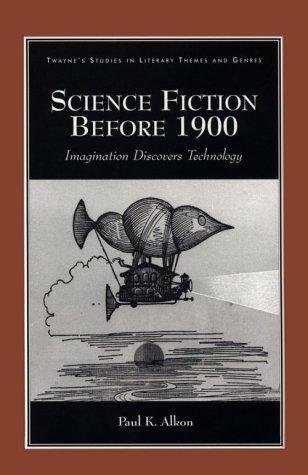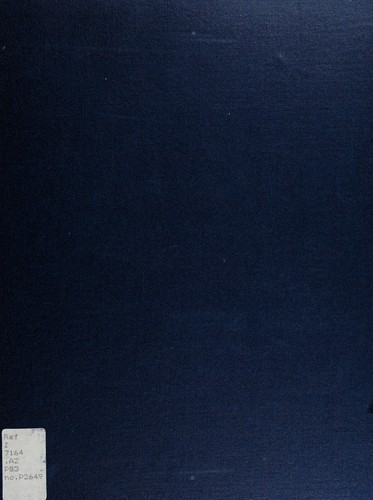
Science fiction before 1900
by Paul K. Alkon
Because science has played the leading role in defining our world today, science fiction has become the twentieth century's most characteristic form of literature. It excels at articulating the new possibilities for good and evil that shape our destinies in an age when science has created technologies once beyond even the reach of fantasy. Reflecting too the global nature of science, science fiction is the most international of all genres.
Moreover, no other form better illustrates the fact that genres serve ethical as well as aesthetic purposes. With impressive scope and vitality, science fiction engages us in a moral dialogue centering on whether science will ultimately advance humanity or destroy it. Given the sweeping range of these urgent concerns, it is no surprise then that science fiction counts among its ranks an amazingly diverse lot of writers, including H. G. Wells, Aldous Huxley, George Orwell, Ursula K.
Le Guin, Kingsley Amis, Anthony Burgess, Pierre Boulle, Stanislaw Lem, Yevgeny Zamyatin, Kobo Abe, and Isaac Asimov; that its authors hail from countries as divergent from one another as the United States, Russia, Poland, Japan, France, Australia, and England; and that its themes include time travel, atomic warfare, invasions from Mars, genetic experiments, and visits to and from outer space.
In Science Fiction Before 1900, Paul K. Alkon provides a detailed survey of the hallmarks of the evolution of science fiction: Mary Shelley's Frankenstein, Jules Verne's Twenty Thousand Leagues Under the Sea, Albert Robida's The Twentieth Century, Villiers de L'Isle-Adam's Tomorrow's Eve, Edward Bellamy's Looking Backward, Mark Twain's A Connecticut Yankee in King Arthur's Court, and H. G. Wells's The Time Machine and War of the Worlds.
Stressing that full appreciation of these key texts depends on understanding the nature and advent of the genre, Alkon first provides a brimming introductory chapter, "A Short History of the Future." After thus defining science fiction and examining the genre's origins, aesthetics, and social context, he proceeds to chapters on England, France, and America, an unusual arrangement vastly different from the patented chronological order. This choice, though, pays huge dividends: while chronology is a simple matter to maintain across the whole of the book, the national division helps establish an interesting viewpoint on the subject. Alkon, while stressing the worldwide nature of the genre, nevertheless discovers the distinctive features that reflect particular national moods and cultures.
He further explores societal accents by tracing many of the genre's finest elements to themes popular in certain countries: France's fascination with technology and tales of the future; America's profound doubts about technology's impact on humanity, so well evidenced in Twain's time-travel tales; the English search for new viewpoints on the imagination.
The final three chapters of Science Fiction Before 1900 constitute a well-rounded guide to research and further reading. Including a bibliographic essay, recommended titles, and a chronology of works, this section nicely complements Alkon's carefully selected list of readings and provides readers with a firm foundation to explore both the genre and the milestone texts discussed here.



